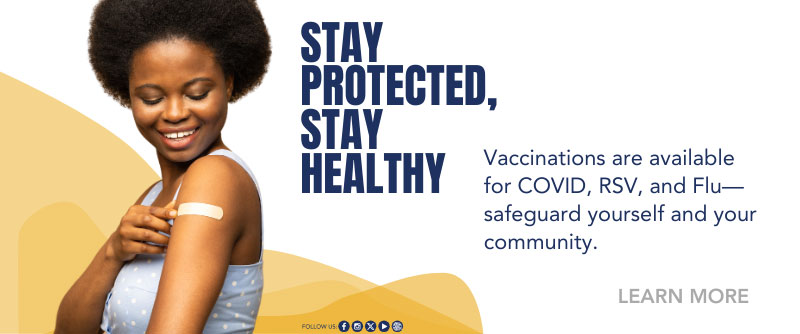Pregnant women may be at higher risk of severe illness from COVID-19 and are more likely to be admitted to the hospital and Intensive Care Unit than other women.
En Espanõl
What to Look For
Cough and shortness of breath are the most common symptoms in pregnant women. Fever is not always present, and many pregnant women have no symptoms.
Newborns and Breastfeeding
COVID-19 does not appear to pass to infants during pregnancy and delivery. However, close contact after birth can lead to infant infections. Breastfeeding and breastmilk do not appear to present a risk of COVID-19 transmission when provided safely. Pregnant women and their families should take steps to stay healthy and reduce the risk for getting COVID-19.
Recommendations for Pregnant Women
- Keep all scheduled prenatal care appointments.
- Limit close interactions with people outside of the home as much as possible.
- Take precautions to prevent getting COVID-19 when you do interact with others.
- Keep these items on hand and use them when you are away from home: A cloth face covering, tissues and a hand sanitizer containing at least 60% alcohol, if possible.
- If possible, avoid others who are not wearing cloth face coverings. Ask others around you to wear cloth face coverings.
- Make sure that you have at least a 30-day supply of your medicines.
- Talk to your healthcare provider about how to stay healthy and take care of yourself during the COVID-19 pandemic. Also see our Healthy Pregnancy web page.
- If you don't have a healthcare provider, contact your nearest community health center.
- If you start feeling sick and think you may have COVID-19, call your healthcare provider within 24 hours.
- You may feel increased stress during this pandemic. Fear and anxiety can be overwhelming and cause strong emotions. Learn about stress and coping.
- Seek care immediately if you have a medical emergency. Hospitals are taking extensive precautions to keep all patients safe.

